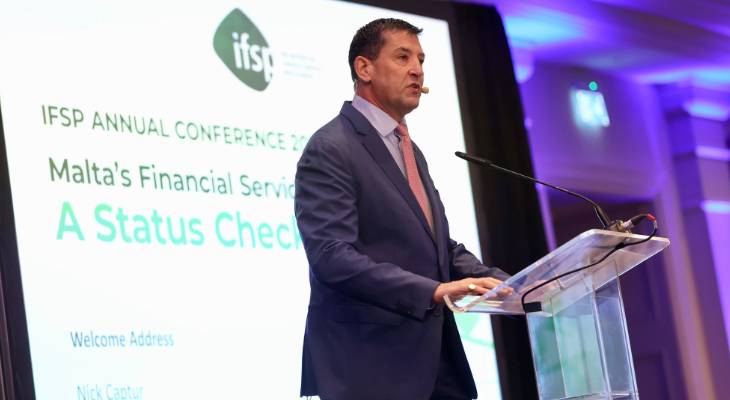Malta Business Registry’s (MBR) CEO and Registrar of Companies, Geraldine Spiteri Lucas, stated that its new online system will not go fully online until practitioners are comfortable with the system, “especially for complex transactions.”
Dr Spiteri Lucas highlighted the recently launched Business Automation Registry Online System’s (BAROS) expected benefits and “teething problems” during the Institute of Financial Service Practitioners (IFSP)’s annual conference.
During a discussion with IFSP Council Member Stephen Attard she agreed that the system has “room for improvement,” and it is for that reason that the system will not go fully online.
The impact of this delay is yet to be determined on companies, which are obliged to file annual returns and statements with the registry.
The new system forms part of MBR’s Strategic Plan 2020-2025. One of the core principles of the strategy was the upgrading of the Agency’s ICT set-up to help achieve internationalisation and improve processes for staff and clients.
To ensure a smooth transition from the previous to the new system, the platform was made available on 31st August 2023.
During the official launch of the system, in March 2024, MBR explained that the system is based on blockchain technology.
This proved to be beneficial to ensure transparency when sharing data and so that there is a digital audit trail to maintain the portal’s integrity.
The system includes a facility to register corporate accounts and an application for a qualified digital signature.
It aims to empower professionals who are in control of the client companies they represent to submit documents from corporate accounts, see if there are any pending penalties or to update the information in a shorter time. This includes instances such as a change of office address or directors.
In addition, it makes use of a qualified digital signature, so that professionals can continue to sign with the same force of normal ink and with the same responsibility.
One of the system’s main goals is to pave the way for the entity to become paperless and more efficient.
During the launch, MBR highlighted that the system has already started seeing benefits from this end. This is because, if a client enters all the necessary information, a company can be incorporated within 24 hours.
Furthermore, from November until March, 662 companies were incorporated online with more than 80,000 documents.

Nick Captur, President of IFSP
IFSP conference takes stock of the industry
The conference, titled ‘Malta’s Financial Services Propostion – A Status Check’, dealt wtih different discussions throughout the day.
This included an analysis of the progress made on the Malta Financial Services Advisory Council (MFSAC) Strategy, the impact of AI on financial services and issues surrounding contemporary tax, among others.
The event kicked off with a panel of speakers; Bernice Buttigieg, Mark Bugeja and Fabio Axisa moderated by Nick Captur, President of IFSP.
The panel, which discussed the MFSAC Financial Services strategy, made it clear that one of the important focus points is rationalising the bureaucracy in the financial services sector.
Another panel led by Steve Gingell with Gianluca Busuttil, Gordon Micallef, Keith Cortis and Alexei Dingli, disucssed AI and Automation in financial services. The conclusion of the discussion was that the current form of AI is unlikely to be the last word, with technology developing fast.
The next discussion delved into the prevention of money laundering and the funding of terrorism (PMLFT). Anthony Cremona, Yehuda Shaffer, Roxanne Borg and Mirko Rapa, moderated by Arianne Azzopardi focused on the legal challenges to the fines imposed for breaches in PMLFT procedures.
In addition, it discussed ways in which the problems faced may be resolved.
After lunch, delegates split into three breakout rooms dealing with more specialised issues. These were, tax developments, potential areas of growth, and the third was titled ‘Driving Value by Integrating Sustainability into the Business.”
Finally, another discussion took place about the corporate service provider (CSP) framework and rulebook. Moreover the final discussion tackled some of the major issues in contemporary tax and about the dangers and bright spots they see on the tax horizon.
Main Image:Geraldine Spiteri Lucas / DOI
